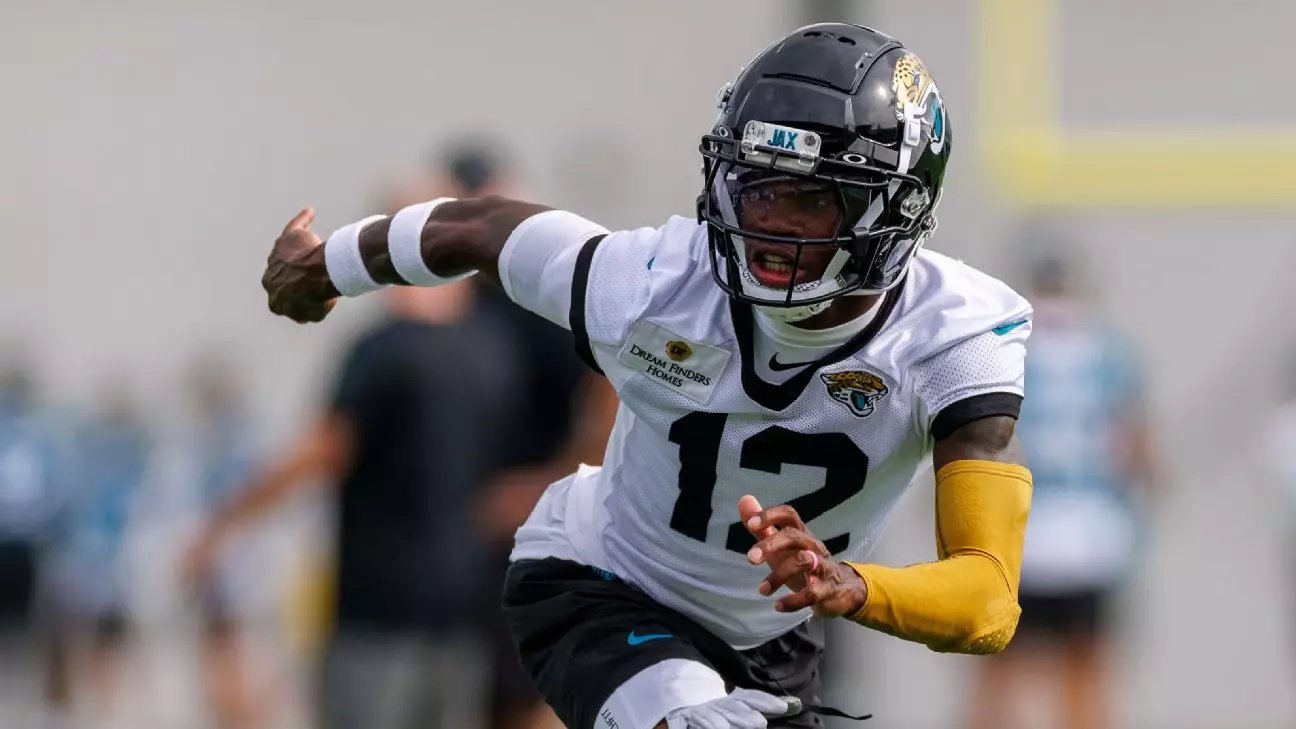The Jacksonville Jaguars’ decision to cultivate Travis Hunter, a promising rookie, as a dual-threat player navigating both offense and defense, exemplifies a bold yet inherently flawed vision of player versatility. While the coaching staff touts the benefits of keeping Hunter’s workload manageable—initially isolating each side of the ball to prevent mental overload—the long-term implications suggest an underlying gamble that borders on reckless. Football is a sport rooted in specialization, where mastery of one position demands intense focus and years of dedication. Blurring these lines risks not only diminishing Hunter’s growth but also undermining the integrity of the game’s traditional structure.
This experimental approach, although seemingly progressive, ignores the core reality that athletic excellence is cultivated through depth and focused skill-building. While Hunter’s apparent calmness and adaptability are commendable, expecting a rookie to seamlessly grasp two complex playbooks and instantly respond to fluid game situations dilutes the art of professional football. If this model becomes widespread, teams may prioritize multi-position players over specialized ones, diluting the quality of competition and elevating the probability of mistakes that can have severe safety and strategic repercussions.
The Illusion of Flexibility: Does It Benefit the Player or the System?
At face value, Hunter’s training plan appears to offer him a unique pathway to NFL stardom—an opportunity to showcase versatility and perhaps carve a niche in a league increasingly hungry for standout multidimensional athletes. However, this narrative masks the underlying reality that such strategies might serve more institutional ambitions than player well-being. Coaches and management, eager to showcase innovative training methods, risk turning players into tactical jack-of-all-trades, sacrificing mastery for flexibility.
While Hunter claims the mental challenge of deciphering two different playbooks is his greatest hurdle, it is undeniable that the mental fatigue induced by splitting focus can lead to lapses, errors, and ultimately, injuries. The NFL is unforgiving, and any decline in precision could mean the difference between a highlight reel and a career-threatening setback. Moreover, overloading players with dual responsibilities may render them more vulnerable to burnout, a concern that does not receive enough attention amidst the enthusiasm for novelty.
Furthermore, the league’s core strength lies in its specialization-driven approach, where players spend years honing their craft within a narrow scope. The rush to replicate the rare patriotism of Chuck Bednarik’s era—who famously played both ways—obscures the fact that the game has evolved dramatically, and so must our understanding of player development. The value of deep expertise is irreplaceable; sacrificing it for experimental versatility diminishes the level of competition and strategic depth.
A Question of the Future: Will Innovation Undermine the League’s Foundation?
The NFL stands at a crossroads where innovation and tradition collide. While daring to push boundaries can lead to exciting, new gameplay dynamics, recklessly chasing unproven concepts threatens to destabilize the sport’s foundational principles. Hunter’s case, and similar experiments, highlight a dangerous trend: prioritizing spectacle and novelty over the robustness of player specialization and safety.
The broader issue lies in the league’s apparent willingness to compromise the physical and mental health of its athletes in the name of progress. Although Hunter’s case shows promise, it should serve as a cautionary tale rather than a blueprint. Prioritizing multi-position capabilities should not come at the expense of developing dedicated specialists who understand the nuances of their craft. The NFL must recognize that long-term player health, the integrity of competition, and the preservation of its strategic depth are worth more than short-term spectacles of athletic versatility.
The risk of adopting such experimental models on a larger scale is that it could erode the league’s identity, turning football into a showcase of utility rather than specialization. Player development should be rooted in refining a singular skill set to maximize performance and safety rather than spreading talent so thin that it compromises the sport’s very essence. It’s crucial for league officials, coaches, and players themselves to acknowledge that true greatness in football comes from relentless mastery—not superficial multi-tasking masked as innovation.


Leave a Reply